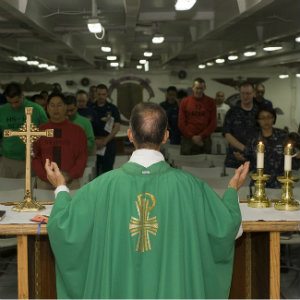
A shocking new report from Australia has forced many in the United States to wonder if enough is being done to protect children from sexual assault and abuse. Contact our team to learn more about your legal options: https://abuseguardian.com/indiana-catholic-church-sexual-abuse-lawyer/
After facing nearly a decade of pressure from Australian citizens to probe further into child sexual abuse allegations throughout the country, the Royal Commission into Institutional Responses to Child Sexual Abuse decided to look at incidents of pedophilia in the Catholic Church. What they discovered was, in a word, horrific.
The group looked at data between 1950 and 2010. During those 60 years, it was determined that 4,444 people made a report to church authorities about an incident of sexual assault. That means that overall, seven percent of priests who worked during that time period had an allegation made against them. In some dioceses, it was as high as fifteen percent.
As if that wasn’t enough, most of the allegations were simply swept under the rug and in some cases, the child making the accusation was punished. The church did nothing to investigate and at most, the person being accused was simply moved to a different church.
These allegations closely mirror those that have been made in the United States, leading many to question why a similar investigation hasn’t been performed here.
Continue Reading: Oklahoma Priest Removed From Ministry Pending Sexual Abuse Investigation
Despite clear evidence that the sexual assault on children in the Catholic Church has been going on for decades, it wasn’t an issue that was widely acknowledged or spoken of – until 1985. It was then that the National Catholic Reporter first published an issue which told the story of a priest, Rev. Filbert Gauthe, who ultimately made the decision to plead guilty to the molestation of 11 boys.
The investigation against him ultimately revealed that he had abused boys for more than a decade. He would schedule “altar boy practices” every day at 6 a.m. and take his victims camping for long weekends. But what their parents didn’t know was that he had placed bars on the windows of the rectory to prevent escape and even had a gun next to his bed, a weapon he would threaten the children with if they refused to comply with his demands. He forcibly raped them and also forced them to perform sex acts on one another – acts that he documented with his camera.
When the bishop heard the first of the allegations made against him, he did nothing. The second time, he simply moved Gauthe to a new parish – one that was even more isolated. It wasn’t until 1983 that the church sent him for psychological treatment after another parent reported molestation. Still, the church attempted to cover up his crimes and offered each of the families more than $4 million to stay silent. But one family decided that going public was the better option. They sued the diocese and Gauthe.
As their story became known nationwide, more victims came forward – making it clear that this was not an isolated incident with one priest.
Since that time, the church has paid out millions of dollars in settlements to the victims of childhood sexual assault. But it is likely that most cases have yet to be addressed because of the decades of cover-ups that bishops throughout the country performed.
Just this past year, a Pennsylvania grand jury determined that two bishops, James Hogan and Joseph Adamec, had spent decades covering up for priests that were in their diocese.
Their methods included creating a pay schedule for specific forms of abuse, moving priests to new parishes, and even going so far as to threaten the victims and their families with excommunication from their faith if they tried to report the crime.
Despite public outcry and an ongoing push for education on sexual assault, many victims stay silent for one simple reason: fear. Fear of being judged, fear that their attacker will hurt them or their families, and fear of having to relive one of the most terrible moments of their lives again in front of a court.
While all of these are legitimate fears, many programs are working hard to make sure that victims understand all of their rights – including the right to remain anonymous.




